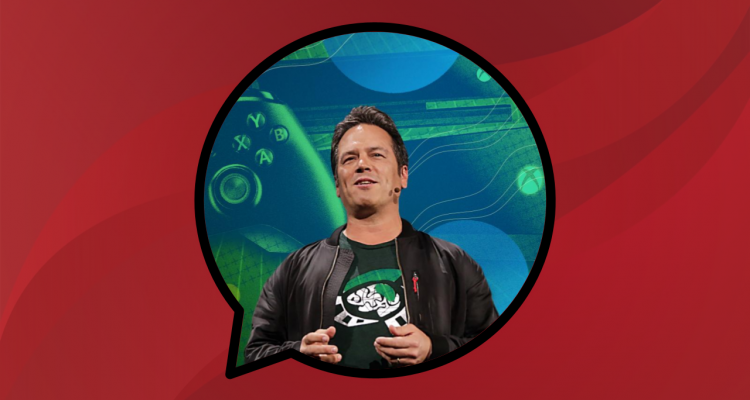The video game industry should kneel before the spectaclesimulation. It should because for many years the latter was doing what no publisher or hardware manufacturer had done (no matter what Microsoft tried to do with its backward compatibility program), namely to make all video games published since the birth of the usable medium. Even today. Not only that, because in addition to video games, he has cataloged and given access to all the culture that grew up around the video game: old books, old magazines, and so on. Phil Spencer’s words about simulation are beautiful and important, but they miss the point, because they do not take into account what has been done so far and refer the problem to an industrial one. Let’s re-read it:
“I think we should learn from the creative path that got us this far. It’s something I love about music, movies, and TV, and there are good reasons why games are following this trend, too. My hope, or at least I think I should define it that way for now, is that we can operate as an industry on a canonical emulator, which allows modern machines to run any executable from the past, and thus allows you to play with any title. I think in the end if we can prove that everyone should be able to buy any game, own any game and have the ability to keep playing it, that could be a great benchmark for the industry.”
To get what Spencer wants it will suffice that most old games Freedom was proclaimed, especially that which publishers no longer exploited in any way (there are thousands … tens of thousands). It would also be enough for operations such as the one to collect the first four Darius, which were sold for 40 euros, to exploit nostalgia, but not to have an impact on modern players, who were immediately rejected due to the price. In short, it will be enough to work on the accessibility and state of something that already exists, get it out of the gray area in which it is always working, and stop looking at nostalgia market It is also formed from shakes to be squeezed in every possible way.
Preserving video games is not only allowing future generations to play them, but also creating one collective memory That makes the medium in its complexity and layers, far from market trends and the nostalgia conveyed by specific marketing. When it comes to simulation, the mistake many make is always to think of it in an individualistic way, and consider it an alternative to modern games. Asking the question whether games of the past are better than games of the present is simply absurd, because it is impossible to give an answer without taking into account the time gap between the first and the last. In theory, games of the past are something that modern enthusiasts can achieve, but they are certainly no substitute for the latest titles. For the old player, on the other hand, the nicknames of the past are part of his existence in time and what is seen today as his limits were just part of the best technology of the time. It makes no sense to compare two different times, because to evaluate the experience of the past, the experience of the present must first be abolished and revived as virgins.
just me technological frontiers They hinder the discovery of the classics by many of those who did not live in certain eras. The mistake is to look into the past in the hope that these limits do not exist, when in fact the enthusiast should go to discover them. At that point, the hallucinatory interfaces of some old role-playing games will become an interesting curiosity, a study document, as well as the terrible scrolling of some 2D platformers or the impenetrability of some text adventures. Memorizing means tracing the history of the medium, which is made up of many aspects, not just what was fun at the time and what might be appealing today, which is actually the quickest aspect of it all.
Preserving means being able to understand how video games were born, who the early developers were, how they came to be, and why certain phenomena, now forgotten by audiences, were essential to access today. Memorizing means understanding what we have achieved, but also what we have lost. It means looking at the world of video games in the mirror to understand the changes in it, whether it’s production, public, expectations or something else. Preservation is, in the final analysis, a means of understanding the entire industry, beyond the phenomena of the moment. Perhaps only those who are able to “maintain” in the higher sense of the term can identify themselves as a true video game enthusiast, after the hours they spend playing, because they tend towards complexity.
This is why Spencer’s words, which seem to boil down everything to selling old games to anyone who wants them on any platform, can do more harm than good, because the danger is in creating a series A, one commercial, and one series B simulation, made by fans The latter is more marginal.
Parliamone is a daily opinion column that provides a starting point for discussion on the news of the day, a small editorial written by a member of the editorial team but not necessarily the editorial line Multiplayer.it.

“Typical beer trailblazer. Hipster-friendly web buff. Certified alcohol fanatic. Internetaholic. Infuriatingly humble zombie lover.”


